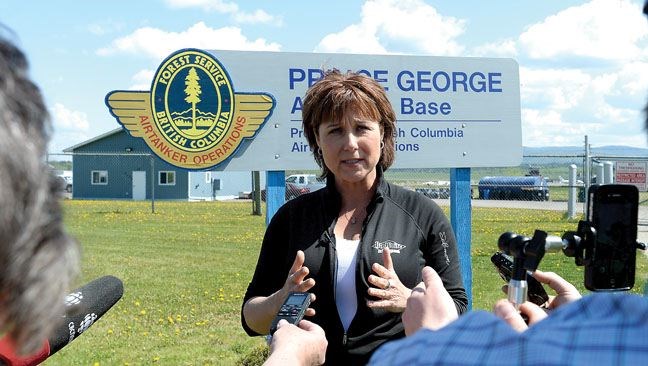With the Softwood Lumber Agreement set to expire Oct. 12, Premier Christy Clark underscored its importance to the province in the legislature this week.
Clark added that when a new federal government is formed later this month, the renewal of the agreement will be the first issue she raises with a new prime minister.
The province blamed the United States for a lack of progress on a successor to the 2006 agreement which, when signed, ended five years of litigation and returned $4 billion of the $5 billion in duties collected by the U.S. to Canadian producers.
B.C. companies received about $2.4 billion of the returned duties.
"Over the past two years, B.C. has been working with the federal government seeking an extension or renewal of the Softwood Lumber Agreement," the government said in a release. "So far the U.S. has not been willing to discuss renewing or extending the agreement."
Clark spoke to the legislature on the issue during an Oct. 7 sitting, saying the forestry industry in B.C. is too important to take for granted.
"For lumber producers and the communities throughout the province that depend on them, we need to avoid an unnecessary trade dispute with our most significant market," she said.
Forests Minister Steve Thomson told the Alaska Highway News in early September that he expects the Oct. 12 deadline to pass without a new deal.
But, he said there is a one-year grace period for renegotiation which will prevent the U.S. from launching any trade litigation.
"We continue to work closely with the B.C. forest industry, other provinces and the federal government to ensure B.C.'s priorities are clearly communicated," Thomson said Wednesday.
Despite opening up new markets for softwood lumber in Asia, the U.S. is still British Columbia's largest export market.
In late November, Thomson will be leading a forestry trade mission to Japan and China.


